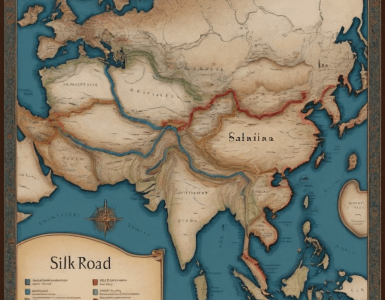Ever wondered why we do the things we do? Why certain traditions persist, seemingly out of nowhere? History, it turns out, is a mischievous pup, leaving its paw prints all over our culture in the most unexpected ways. Forget grand narratives; let’s dive into the weird, wonderful, and downright bizarre links between historical events and the cultural practices we take for granted.
The Curious Case of the Fork: From Fancy to Familiar
Forks. We use them every day, right? Seemingly mundane. But their journey to our dinner tables is anything but. For centuries, the fork was considered a ridiculously pretentious invention, a symbol of outlandish wealth and foreign fads. Imagine the medieval dinner scene – fingers were the norm! The fork’s ascent to everyday utensil status is a fascinating example of how a seemingly insignificant object reflects broader social and technological shifts. The adoption of the fork in Europe, initially met with suspicion, eventually became a marker of refined dining, its spread mirroring changing ideas about hygiene and etiquette.
The Potato’s Amazing Impact: More Than Just a Side Dish
Now, let’s talk potatoes. Sounds boring, right? Think again. This unassuming tuber single-handedly revolutionized European agriculture, population growth, and even political power! Introduced from the Americas, the potato’s high yield and nutritional value changed the landscape of farming and sustenance, contributing to population booms in Ireland, for instance – a story that tragically took a dark turn with the Great Famine. This highlights how a seemingly simple agricultural change can have a devastating societal impact.
The Unexpected Origins of Afternoon Tea: A Surprisingly Political Brew
Afternoon tea, that quintessentially British ritual of dainty sandwiches and delicate china, owes its surprising origins to Anna, the 7th Duchess of Bedford. Feeling peckish between lunch and a late dinner in the 19th century, she devised this elegant solution, and voila! A social custom was born. But it wasn’t just about hunger; it became a social event for the upper classes, a symbol of leisure and refined taste. This demonstrates how seemingly personal habits can transform into widespread cultural traditions. Yet another unexpected ripple effect of an individual’s routine.
The Olympics: From Religious Ritual to Global Spectacle
The modern Olympics, a global celebration of athletic achievement, has a surprisingly ancient and religious past. The original Olympic Games in ancient Greece were dedicated to Zeus, the king of the gods, and were interwoven with religious festivals and rituals. While the modern games have lost their overt religious significance, the spirit of competition and international unity remains, showcasing the enduring power of cultural adaptation and transformation. Who knew a religious festival could turn into a global sporting event?
The Curious Case of the Christmas Tree: A Pagan Past, Christian Present
The twinkling Christmas tree, a symbol of the holiday season for many, boasts a fascinating and unexpected history. While now associated with Christianity, the tradition’s roots lie in pre-Christian Europe, where evergreen trees were revered for their ability to survive winter, often associated with pagan winter solstice celebrations. The adoption of the Christmas tree into Christian festivities showcases the blending of old and new traditions. History's Unexpected Bedfellows: Culture's Curious Cousins
From Spices to Wars: The Unexpected Power of Flavor
The spice trade. It sounds exotic, and it was. Throughout history, the desire for exotic spices – cinnamon, cloves, pepper – fueled exploration, colonization, and even wars. Entire empires were built and toppled over the control of these precious commodities. The routes of these spices created powerful trade networks and shaped the cultural and economic landscapes of continents. This shows how seemingly simple things like spices could be fundamental factors that changed the world.
The Unexpected Legacy of the Roman Empire: The Lingering Echoes of Pax Romana
The Roman Empire, a civilization that dominated the Mediterranean world for centuries, may have fallen, but its influence continues to reverberate through our languages, laws, and political structures. Latin, the language of the Romans, profoundly impacted the development of Romance languages like French, Spanish, and Italian. Roman law laid the groundwork for many modern legal systems, while the organization of the Roman state influenced the development of governance across Europe. This demonstrates how the legacies of empires can continue to influence the modern world.
Odd Facts and Little-Known Origins:
- The word “sandwich” is named after the 4th Earl of Sandwich, who reportedly requested his meat served between two slices of bread so he could eat while playing cards.
- The tradition of wearing wedding rings on the fourth finger of the left hand stems from an ancient belief that a vein in that finger, the “vena amoris,” runs directly to the heart.
- The word “assassin” originates from the Nizari Ismaili sect, a group of medieval Muslims known for their stealth and political assassinations.
- Pasta, a culinary staple of Italy, actually has origins in China.
- The use of chopsticks has influenced the design and eating customs of East Asian cultures.
These are just a few examples of the fascinating and often surprising connections between history and culture. By exploring these hidden links, we gain a richer understanding of our world, its complexities, and the enduring legacy of the past.

























Añadir un comentario